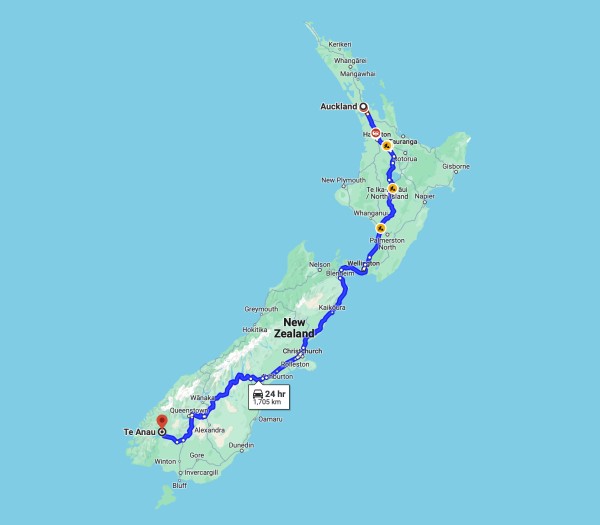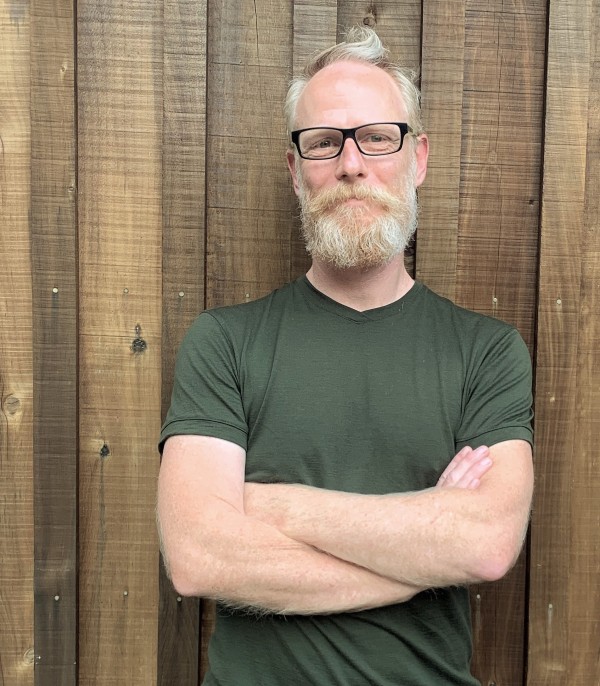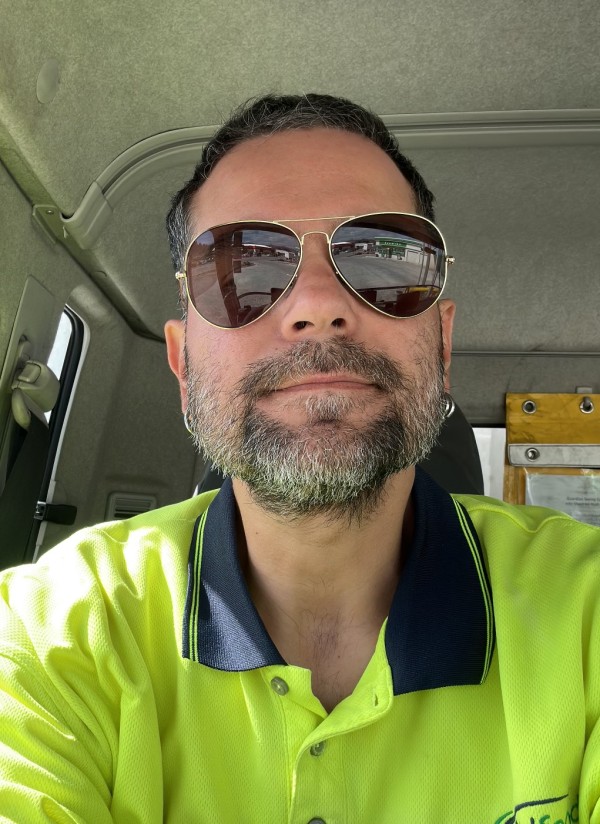Queenstown workers being forced to leave NZ after visa changes

The government announced a suite of changes to the immigration rules on April 7, calling the move a response to unsustainable net migration, however, the overnight changes have up-ended the lives of workers in Queenstown and surrounds.
The policy change sees more jobs and industries scratched off the residency pathway list, and now requires migrants on the Accredited Employer Work Visa (AEWV) to undertake an English language test and have three years' prior experience for the job they're applying for effective immediately.
The maximum stay in New Zealand under the AEWV also dropped from five to three years.
To both migrants and their employers the news came as a shock and demanded people now jump through new hoops to stay in the country, and incur more costs in doing so.
Four migrants spoke to Crux this week about how the changes have disrupted their lives. Local unionist Simon Edmunds and Queenstown Chamber of Commerce chief executive Sharon Fifield have weighed in as well.

Micaela of Te Anau went from applying for an AEWV to having two months to leave the country.
Micaela Berthoud was up to the last step of the accredited employer visa application process - the medical exam - and planned to book her appointment on April 8. But everything changed the day before.
"I cried. I cried because I had it all planned in my head...It was really sad," Ms Berthoud says.
"I was telling my mum the next day, I called her, 'like, you're not going to believe what is happening'. Because I felt like they [the government] were taking the ground out under my feet and suddenly I was falling."
She received an email from her immigration advisor the same day changes were announced explaining they were ceasing her application.
Ms Berthoud doesn't have three years of experience for the role she wanted at the Te Anau Holiday Park.
Her current visa expires in a few weeks in June, and she's decided she'll head off to Europe now.
Ms Berthoud's already been working in Te Anau since September, and had aspirations to stay for many years.
"This is the first job I liked...I love the town and the people, my boss is great and the people I work with are great."
She and her employer started the sponsorship process in March, after the busy peak season finished.
"My boss told me, it's really hard for them to find somebody who wants to come this far. It is two hours of driving from the next city...so nobody wants to stay for long."
She came here from Argentina on a one year working holiday visa last year, starting out in Auckland, but her employer up there couldn't offer her sponsorship - which is what she really wanted.

From the big smoke of Auckland, to the quiet town of Te Anau, Micaela travelled.
After seeing the Te Anau job, she decided to go for it, packing up her things again and moving 1,700 kilometres from her better-paying Auckland job to the town of 2,000 people.
Ms Berthoud says she wanted to tell her story to the media because the changes have felt really unfair.
"I understand there's a lot of immigrants here right now...I know in the big cities it's hard to get a job, but when I came here I realised there's other cities and towns and other places where they actually need people and people from New Zealand don't want to come here to work.
"I feel that it's not really fair - the decision to make all of New Zealand under the same rules."

Union representative Simon Edmunds says migrants shouldn't be treated like disposable batteries.
Otago/Southland Unite union organiser and Queenstown resident Simon Edmunds says it feels like the migrants are being "punished" for the shortfalls of the AEWV and migration.
"If they’re good enough to come to New Zealand and work in our businesses, they should be good enough to become residents and have the support and rights of other New Zealand workers," Mr Edmunds says.
In a recent blog post written for Unite union, Mr Edmunds says that migrants shouldn't be treated like "disposable batteries".
"Here to be used up and then discarded."
From his time as a union worker, he has seen migrant exploitation occurring in Queenstown, and tells Crux some of the issues are caused by the way AEWV ties migrants to a single employer.
The Queenstown Citizen Advice Bureau submitted a proposal to the immigration minister in February this year, before the recent changes, recommending migrants should be able to easily switch between employers under the AEWV.
Currently, they have to undergo a long job check process, which can take up to three months.
For Queenstown-based Nelson Rodrigues, the new rules have "changed everything", and now he's preparing himself to leave.
"I was in a relationship and she was from another country but with the time (I have) left, we are going to have to split. We had to break up because it is not going to happen anymore."
Before April 7's alterations to the AEWV, he would soon have been able to apply for a one year extension to his visa, but now, this option feels like it's been taken off the table since he's got to take the English test.
However, the tests are in hot-demand, and the only places to sit them in the South Island are in Christchurch, Dunedin and Nelson, and they're booked out for months.
Mr Rodrigues says the one available slot he could find is five days before his visa runs out this August.
"If anything goes wrong, I won't have more time. I will have to leave the country."
After living in Queenstown for a year and eight months, he's started packing up and selling his belongings.
"It's like a countdown, and everything I am doing now, I am thinking about 'okay, I have to leave'...I don't feel ready."
Mr Rodrigues worked in IT in his home country of Brazil and he came to Queenstown to start working as a housekeeper.
He says there are four people at his work who have uprooted their families and moved to New Zealand, thinking their future here was secure. They're facing the same uncertainty he is.
"I am just one person, I can go back to Brazil... but they have children who are five years old and a wife. It is really bad."
Vanessa from Ecuador
Vanessa is employed on an accredited employer visa, however hers doesn't expire until February 2025. She wants to be a voice for other people who are "scared", and won't talk to the media.
"With these immigration laws there are many uncertainties, and these uncertainties are influencing peoples emotions and mental state...and it's causing so much stress."
Vanessa wants people to realise that New Zealand is quite far away, it's a "big deal" for migrants to move here, and these changes have made a lot of people "concerned".
"There are many things involved with moving to a super far away country like New Zealand and...the changes were very radical, from one day to the next, now you need to take an exam, and prove three years of experience."
Vanessa also talked about the English tests, noting it's added an extra cost for migrants to fly or drive to another city for the exam, and it requires people to study too.
And, the English courses in Queenstown are "expensive", she says.
It costs upwards of $360 a week in Queenstown at the Southern Lakes English College.
Vanessa also shares with Crux her frustration that the pathway to residency keeps changing for migrants.
At the start of 2023, she was told by an immigration advisor that she should work in tourism in Queenstown, because it gives migrants a pathway to residency in New Zealand.
She took the advice and started working in tourism.
"And then in November (2023), the law changed and now tourism was not included in any list to residency anymore."

Ariel Bohn, a Brazilian truck driver who no longer can become a resident in New Zealand.
In 2020, Ariel Bohn first came to Queenstown to see his brother - who'd moved over a few decades before - and to meet his newborn niece.
"On 8th of April, I had to wake up and see, 'oh I can't get on the path of residency anymore and it has changed my stay in New Zealand'...my visa is going to finish on December 5th, 2025, and I can't reapply for another work visa. I will need to get out of the country."
He was about to apply to work for a new company working as a Class 5 driver, but on April 7, truck drivers were taken off the list of jobs that could give migrants a pathway to residency.
Becoming a resident in New Zealand is no longer an option for him.
But he doesn't understand these changes, because there is a big shortage of truck drivers in the country - and not many Kiwis who are willing to do the job.
At the delivery company he works for, there are only three or four Kiwis, but comparatively there're "a lot" of people from Uruguay, Brazil, Argentina and South Africa.
Mr Bohn also spoke more generally about his thoughts on the visa changes.
He says there are a lot of migrants that when they start working in New Zealand, they aren't working in the same field as they were back home. So they won't have three years worth of experience that the visa now requires.
"I know people there are graduated in Brazil, but they are housekeepers here. But they won't have there three years of experience as a housekeeper, so they can't get that job anymore. We are going to have a collapse.
"All the hospitality here in Queenstown, they are gonna start screaming, because they can't get cleaners, they can't get housekeepers anymore."
Queenstown Chamber of Commerce chief executive Sharon Fifield has been "kept busy" this week as a result of AEWV changes, speaking both with the local businesses and employers of the town, and Immigration Minister Erica Stanford.
The minster told her that there would be more changes to the AEWV from the government, but it was told it was "early days" for new policy.
"Her intent with future immigration policy is that she would like to see a lighter touch and more flexibility for those good employers."
There needs to be a new plan by summer, Ms Fifield.
"A lot of employers, they rely heavily on these accredited employer visa workers for the simple fact that just aren't Kiwis here on job seeker looking for work...so these (AEWV) people are a huge part of the workforce."
She says she plans to start gathering the numbers of employees who have to leave because of changes - but she reckons it's a lot of people.
"The key message that we've been relaying to government is that we are an international town, it is a fact that we don't have a lot of Kiwi applicants to draw from locally.
"They are really important and valuable part of our workforce, and particularly through COVID, they really hang in there and helped them out.
"It's really upsetting for people, the government obviously has used a really blunt tool, because migration hasn't been at sustainable levels.
"So it feels like a period of pain that we're going to be going through until they balance that out and actually come up with, I think, a smarter immigration policy - which is what is needed."
However, Ms Fifield notes Kiwi migration out of New Zealand hit headlines this week for being at an all time high.
New Zealand sets new record net migration loss as Kiwis flee overseas, Newshub reported.
Statistics NZ revealed on Tuesday that New Zealand citizens net migration was at a loss of 52,500 in the year to March with 25,800 arrivals and 78,200 departures.
What would Ms Fifield like to see?
She'd like recognition of the make up of Queenstown's economy and the fact there aren't as many Kiwi applications to draw on down here. She says the 'one size fits all' policy with immigration doesn't work for Queenstown.
"If you look at tourism it is such a high GST earner and a high export earner for the New Zealand economy."
She wants to see "settings that enable employers to get on with business".
"Winter is going to be tough but the real concern is coming into summer as well, because a lot of these will start to expire and staff will leave and that's going to be quite significant numbers."
She says they will keep pressing the minister and highlighting these issues, and she encourages employers to continue to reach out to them as well.
Main image: Micaela Berthoud (left) and Ariel John (right).

























